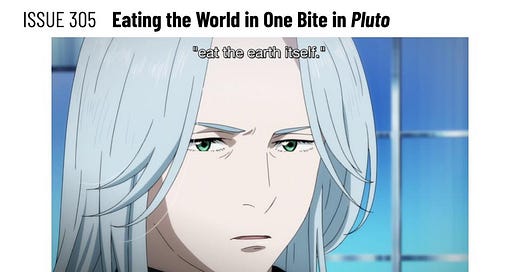Issue #305: Eating the World in One Bite in Pluto
I have only mentioned the ongoing state sanctioned massacre with seemingly genocidal aims perpetrated by the so-called state of Israel and inflicted upon Palestine in brief passing. I have been self-conscious about discussing it in the same proverbial breath as anime and pulp movies. I wouldn’t say I am over it, I feel self-conscious doing it now. A few…




